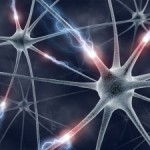Emergent phenomena

(c) cc-by | Steffen Zahn
To describe emergence and to explain what an emergent phenomenon is I will start with an example. Consider a puzzle where you have a lot of small fragments. There is only one solution and if you do it right you get a new object. In our case it is the final picture we were looking for.
So emergence describes the effect of new arising complex situations or complex systems through its simple components. It can be divided into weak emergence and strong emergence. Strong emergence means that a system can’t be explained by the help of its individual parts. This is a controversial assumption and for the sake of simplicity I won’t make a distinction between weak and strong emergence in this article.
Before going more into detail I have listed some examples for emergence below.
-
Our intelligence (human intelligence)

(c) cc-by-sa | Fotis Bobolas
Having billions of neurons that are interconnected and communicating with each other, our brain and especially the neural network in it is a very good example for emergence. Although there are a lot of attempts to rebuild this system, the phenomenon intelligence is unique so far (at least in this magnitude). It is a nice gift that everyone of us is carrying around.
-
An ant nest

(c) cc-by-sa | Matt Reinbold
While a single ant seems to be very weak and not intelligent, a whole ant colony can find the shortest path in complex areas. Did you know that there are Ant colony optimization algorithms? In addition there are ant colonies that can build nests with perfect thermal conditions (fresh air during the day and saved warmth for the night). The stunning thing is that these nests have applied knowledge of thermodynamics in it.
-
Giant’s Causeway

(c) cc-by-sa | Gilles Lefeuvre
Not only in living organisms but also in non-living things emergence can be found. One example for that is the Giant’s Causeway. A volcanic eruption has produced this extraordinary piece of nature. It is located in northern Ireland and it is declared World Heritage Site.
There are a lot of things that seem to be very unspectacular in our daily life. The point is that you often forget the importance of the corresponding details: the little components that are responsible for much mightier phenomena.
Very sensitive systems underlie emergent phenomena like the ones above. Changing initial conditions can cause the extinction of an emergent phenomenon. Although the starting conditions can be deterministic the interplay of its components and with it the outcome is very unpredictable. This is referred to as the Chaos theory. When it comes to emergence there is only one possibility to achieve a desired outcome. You could say we need to hit the jackpot here.
To be more precise every component of the entire system increases its complexity in an exponential manner. That is why we have no possibility to explain such effects with the help of maths or especially with the help of computers (super computers) today. They are just too complex for our technology.
Whereas a neural network looks nice and easy to understand on the first glance it is very complicated to understand its intended functionality inside our brain. As long we don’t know how things like consciousness come up there is no chance to simulate intelligent behaviour like ours. One possible approach is to obtain information and to build a precise computer model of our brain. By achieving this goal we will have considerably more reach of play to understand the emergence behind it.
In conclusion emergence means the creation of new things with the help of a hierarchical construction. It is responsible for things like organisms, swarm intelligence and intelligence to work in the way we know it. In my opinion it is not a taken-for-grantedness but rather a very fascinating phenomenon that exists in our life.


Suresh
August 26, 2014 at 17:14Thank you for clearing my doubts regarding EI and SI.
Ruslan H.
August 26, 2014 at 17:22Thank you very much for your interest. If you have any suggestions for me to improve the content on this site please feel free to tell me :).
Suresh
August 23, 2014 at 17:37Hello Ruslan H, Could you tell me the difference between Emergent Intelligence and Swarm Intelligence
Ruslan H.
August 24, 2014 at 16:59Hello Suresh, the word Swarm Intelligence describes the collective intelligence (or behavior) of multiple entities (as for example ants). Whereas Emergent Intelligence can already appear in one single entitiy. Just consider your own brain, there are a multitude of neurons connected in a symphony like setup. This setup leads to intelligence and therefore we can say that this effect is "Emergent Intelligence". So basically "Swarm Intelligence" imples that all its involved entities have already some form of intelligence whereas "Emergent Intelligence" is just an effect that could already occour in one single entitiy.
Suresh
August 25, 2014 at 05:36Hello Ruslan H, Thank you for reply So as far your example of EI is consider, each neuron is like an ant and group of neuron's intelligence is called collective intelligence (or behavior) i.e. EI is SI. In one of the website i have read about EI i.e., EI is a form of macrointelligence that arises from local interactions. It isn’t merely the simple stigmergic interactions necessary for the coordination of the swarm activities of local autonomous agents. Rather, it is a form of group intelligence that learns, achieves goals, and engages in self-preservation. After reading this i'm getting confusion about EI and SI. EI and SI does similar work, hence SI is an example for the EI.
Ruslan H.
August 25, 2014 at 12:27Ok let's try to resolve the confusion. Your last sentence "SI is an example for EI" is exactly correct. You need to understand that SI is a subset (or rather a special case) of EI. EI covers more things as for example the human brain where individual parts don't clearly show any sign of intelligence opposed to SI where it is obvious that each part already has some form of intelligence. To take this further SI means the merge of multiple intelligent indivdiuals to get a new collective form of intelligence. EI is the merge of (probably) unintelligent parts to get intelligence in the first place.
Suresh
August 26, 2014 at 06:02Hello Sir, You mean to say EI represents the collective behavior of un-intelligent parts leading to intelligent behavior? then how come the SI is subset of EI?
Ruslan H.
August 26, 2014 at 17:11If we take a look at SI you see that the collective form of intelligence is also a new form of "intelligence" that has emerged (therefore it should be obvious that SI is a subset of EI). For EI I further stated that it is the merge of "(probably) unintelligent" parts. Here I used the word "probably" to allow exceptions like SI where the parts are allowed to be intelligent already. Hence I wanted to state that EI in contrast to SI also allows its parts to be unintelligent.
RG
November 30, 2012 at 20:26Hey, nice article! I especially like the aspect of swarm intelligence and the ant example.
Ruslan H.
November 30, 2012 at 22:09Thank you RG. I will definitely write a separate article about swarm intelligence in the next weeks so just stay tuned :)